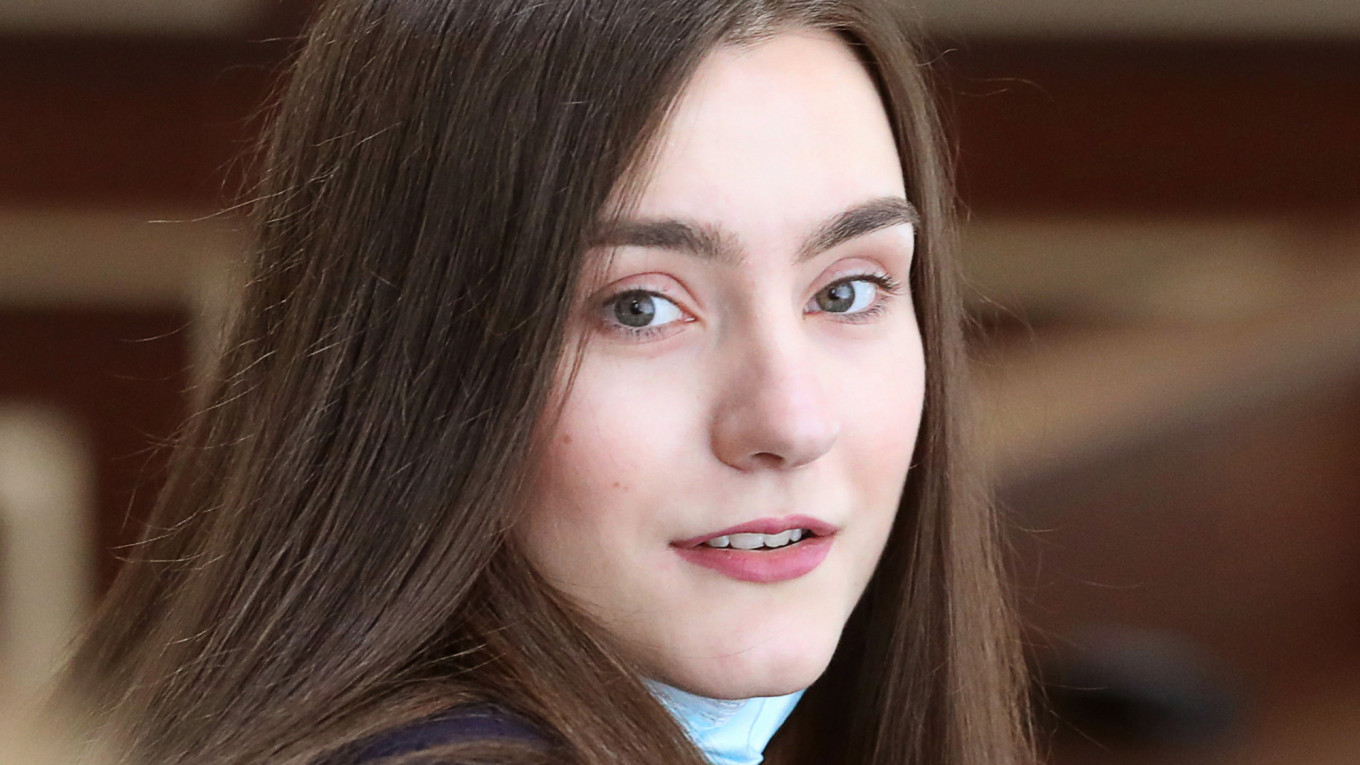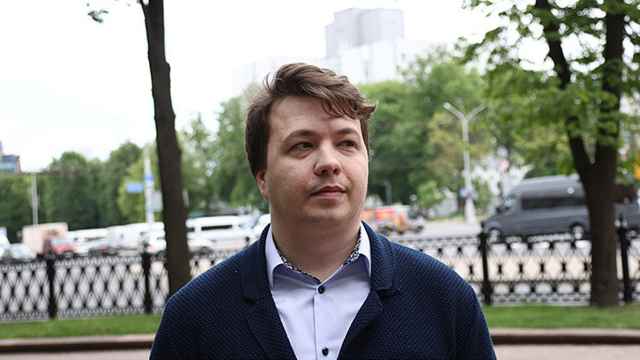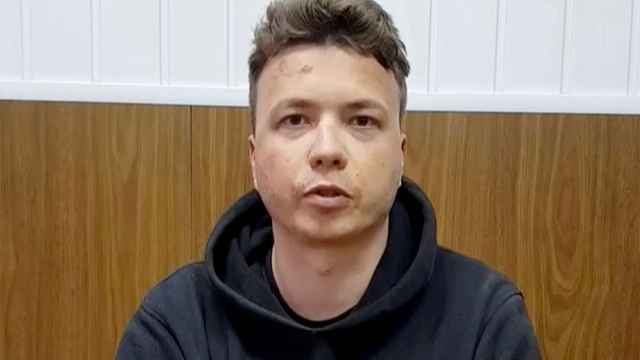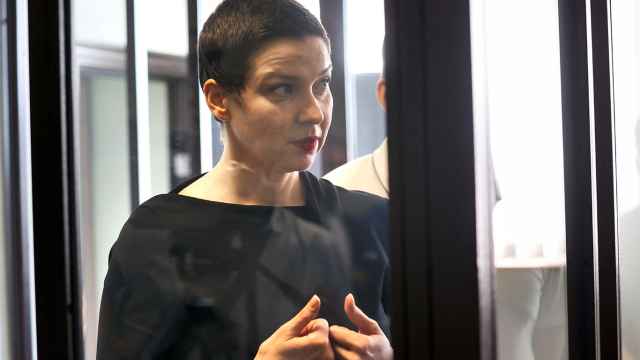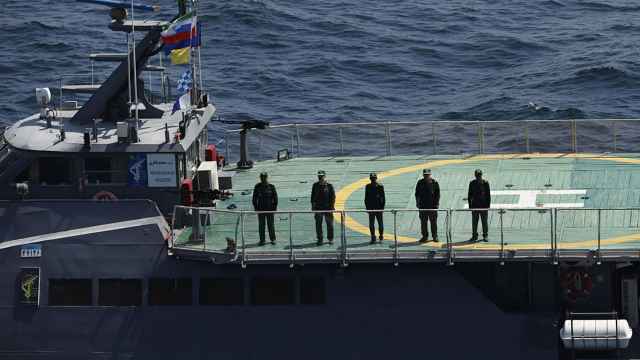Russian student Sofia Sapega has sought a pardon from Belarusian President Alexander Lukashenko a month after being sentenced to six years in prison on extremism charges, the BBC’s Russian service reported Monday.
Sapega and her then-boyfriend, Belarusian dissident Roman Protasevich, were detained in May 2021 when Minsk authorities forcibly diverted their international flight as it flew through Belarus' airspace. The move prompted a global outcry and Western sanctions on Belarus.
Protasevich had been the editor of Nexta, a Telegram channel that played a key role in mobilizing the anti-Lukashenko protests of summer 2020 following the authoritarian leader's widely disputed election victory.
Belarusian authorities accused Sapega of editing a Telegram channel that published the personal information of police officers accused of beating and torturing protesters.
Belarus’s Grodno Regional Court found Sapega, 24, guilty on May 6 of inciting social enmity and discord as well as illegally collecting and disseminating information about the private life of an unnamed person.
The BBC said it had obtained the text of Sapega’s petition for clemency dated June 22.
“I just want to be near my family,” it was quoted as saying. “I want to breathe freely.”
According to the BBC, Sapega said she “sincerely repents” for her crimes, which she said were motivated by her “youth and stupidity,” as well as mental and physical instability.
“[I] fell under the influence of a destructive group of people.”
Sapega reportedly said she “assisted the investigation” in implicating others of unspecified crimes.
Russia’s Foreign Ministry said earlier in June that Sapega’s disclosures could serve as grounds for her clemency. Lukashenko said earlier that she could be transferred to Russia.
Sapega’s lawyer told the BBC that she could be pardoned by Russian President Vladimir Putin in the event of her transfer.
A Message from The Moscow Times:
Dear readers,
We are facing unprecedented challenges. Russia's Prosecutor General's Office has designated The Moscow Times as an "undesirable" organization, criminalizing our work and putting our staff at risk of prosecution. This follows our earlier unjust labeling as a "foreign agent."
These actions are direct attempts to silence independent journalism in Russia. The authorities claim our work "discredits the decisions of the Russian leadership." We see things differently: we strive to provide accurate, unbiased reporting on Russia.
We, the journalists of The Moscow Times, refuse to be silenced. But to continue our work, we need your help.
Your support, no matter how small, makes a world of difference. If you can, please support us monthly starting from just $2. It's quick to set up, and every contribution makes a significant impact.
By supporting The Moscow Times, you're defending open, independent journalism in the face of repression. Thank you for standing with us.
Remind me later.


